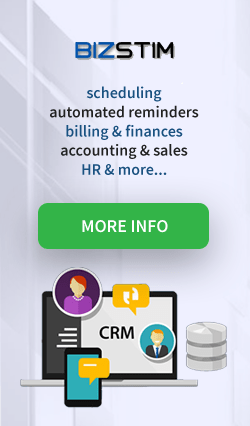
Looking to hire an accountant for your small business? Making the right choice is crucial for the financial health and success of your company. To ensure you find the perfect fit, it's important to ask the right questions during the hiring process.
Here are some key questions you should consider:
- What experience do you have working with small businesses?
- What specific services do you offer for small businesses?
- Are you familiar with the tax regulations and deductions relevant to my industry?
- Can you provide references from other small business clients?
- How do you communicate and collaborate with your clients?
- What are your fees and payment terms?
- How do you stay updated on changes in tax laws and regulations?
By asking these questions, you can evaluate the accountant's expertise, compatibility with your business needs and their ability to provide the necessary support for your financial goals. Selecting the right accountant is essential for effective small business financial planning and ensuring compliance with tax obligations.
Remember, finding a good accountant is not just about their technical skills, but also about their understanding of your industry and their ability to provide valuable advice and guidance. Take the time to ask the right questions and make an informed decision for your small business.
The Importance of Hiring an Accountant for Your Small Business
When running a small business, it's easy to become overwhelmed with the multitude of tasks that demand your attention. From managing day-to-day operations to acquiring new customers, your plate is undoubtedly full. That's why hiring an accountant for your small business is of utmost importance. Their expertise in small business accounting services can provide you with invaluable support in navigating the complex world of taxes and finances, allowing you to focus on the growth and success of your business.
One of the key benefits of hiring an accountant is their ability to help you with small business tax planning. Tax laws and regulations can be confusing and missing important deadlines or making errors can lead to costly penalties. An accountant can ensure that you comply with all tax obligations and work with you to identify potential tax deductions that can save your business money.
Additionally, an accountant can assist you in maintaining accurate and organized financial records. They can provide guidance on the records you should keep for your business, such as tax returns, financial statements, bank statements and receipts. By ensuring that your records are properly organized and securely stored, an accountant can help you avoid potential issues with audits and provide a clear picture of your business's financial health.
The Role of Small Business Tax Planning
Small business tax planning is a crucial aspect of financial management. By working closely with your accountant, you can develop a tax strategy that minimizes your tax liability while maximizing your business's financial growth. This includes understanding important tax deadlines, identifying tax deductions and credits and implementing strategies to optimize your tax position. With the expertise of an accountant, you can navigate the complexities of the tax system and ensure that your business remains in compliance with all tax regulations.
In conclusion, hiring an accountant for your small business is essential for your overall financial well-being. They can provide valuable assistance with small business tax planning, recordkeeping and financial management. By leveraging their expertise, you can focus on what you do best: growing your business and achieving your goals.

Questions to Ask Your Accountant About Recordkeeping and Tax Obligations
Hiring an accountant for your small business is a crucial step towards ensuring the financial success and health of your company. Beyond their expertise in tax planning and financial advice, it is important to also discuss recordkeeping and tax obligations with your accountant. Here are some key questions to ask:
1. What records should I keep for my business?
Your accountant can provide guidance on the specific records you should maintain for your business. This may include tax returns, financial statements, bank statements, receipts, contracts and payroll records. Understanding what records to keep and how to organize them is essential for accurate financial reporting and compliance.
2. How should I organize and store these records securely?
Your accountant can advise you on the best practices for organizing and storing your business records securely. This may involve implementing digital systems to store electronic copies of documents, setting up password-protected files, or using cloud storage platforms. Ensuring the confidentiality and accessibility of your records is crucial for meeting legal and regulatory requirements.
3. What should I do to prepare for tax season?
Discuss with your accountant the necessary steps to prepare for tax season. They can guide you through the process of gathering and organizing the required documentation, such as income statements, expense records and receipts. Additionally, they can provide insights on potential business tax deductions and credits that can help minimize your tax liability.
4. How can I manage my business finances effectively?
Your accountant can offer valuable advice on cash flow management and financial planning for your small business. They can help you understand and monitor your break-even point, forecast future expenses and revenues and develop strategies to optimize your financial performance. By collaborating with your accountant, you can make informed financial decisions and ensure the long-term success of your business.
Conclusion
In conclusion, hiring an accountant for your small business is a crucial step towards ensuring the financial health and success of your company. With their expertise in small business accounting services, they can provide valuable assistance with various aspects of your finances.
When looking for an accountant, it's important to ask the right questions during the interview process. These accountant interview questions should revolve around their experience with small businesses, their understanding of tax obligations and their overall approach to financial management.
By selecting a qualified and experienced accountant, you can benefit from their expertise in tax planning, recordkeeping, cash flow management and overall financial strategy. They can help you navigate the complexities of the financial world, allowing you to focus on growing your business.
Remember to consider these tips for hiring an accountant: thoroughly evaluate their qualifications, ask for references from other small businesses and ensure they have the necessary expertise in your industry. By taking these steps, you can find the right accountant to meet your small business's unique needs.
Do you ask different questions during the hiring process? Provide us with an example.










